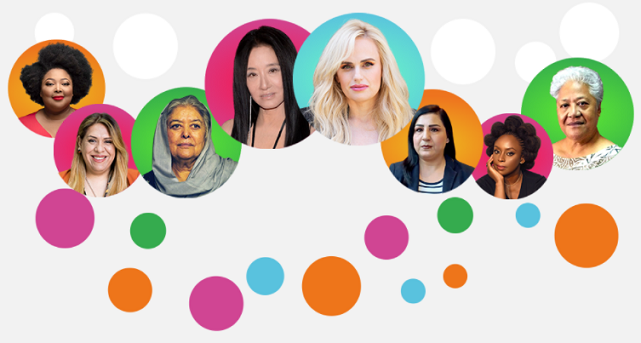 The BBC has revealed its list of 100 inspiring and influential women from around the world for 2021.
The BBC has revealed its list of 100 inspiring and influential women from around the world for 2021.
This year 100 Women is highlighting those who are hitting “reset” – women playing their part to reinvent our society, our culture and our world. Among them are Malala Yousafzai, the youngest ever Nobel Peace Prize laureate, Samoa’s first female prime minister Fiamē Naomi Mata’afa, Professor Heidi J Larson, who heads The Vaccine Confidence Project, and acclaimed author Chimamanda Ngozi Adichie.
Women from Afghanistan make up half of this year’s list, some of whom appear under pseudonyms and without photos for their own safety. The resurgence of the Taliban in August 2021 has changed the lives of millions of Afghans – with girls banned from receiving secondary education, the ministry for women’s affairs being disbanded, and women in many cases told not to return to work. This year’s list recognises the scope of their bravery and their achievements as they are forced to reset their lives.
How were the 100 Women chosen?
The BBC’s 100 Women team drew up a shortlist based on names gathered by them and suggested by the BBC’s network of World Service languages teams. We were looking for candidates who had made the headlines or influenced important stories over the past 12 months, as well as those who have inspiring stories to tell, achieved something significant or influenced their societies in ways that wouldn’t necessarily make the news. The pool of names was then assessed against this year’s theme – women who are hitting “reset”, playing their part to reinvent our world after the global pandemic has forced so many of us to reassess the way we live. It was also measured for regional representation and due impartiality, before the final names were chosen.
This year BBC 100 Women made the unprecedented decision to devote half of the list to women from one country – Afghanistan. Recent events in the country have made headlines and left millions of Afghans questioning their future, as rights groups have spoken up in fear that women’s freedoms could be eroded for the foreseeable future under the Taliban. By dedicating half of the list to women who are from or work in the country, we wanted to highlight how many of them have been forced to disappear from areas of public life, as well as to share the voices of those who are being increasingly silenced or who are part of a new Afghan diaspora.
On 3 December, the Taliban did issue a decree in the name of their supreme leader instructing ministries “to take serious action” on women’s rights. The decree sets out the rules governing marriage and property for women, stating that women should not be forced into marriage and should not be seen as “property”. But this declaration has been criticised by human rights organisations and observers as it fails to mention girls’ secondary education and women’s curtailed rights to employment.
Some of the Afghan women on the list are anonymous to protect them and their families, with their consent and following all BBC Editorial Policy and safety guidelines.


